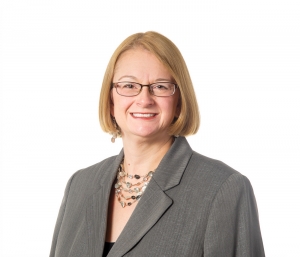School-building closures due to the COVID-19 pandemic have Ohio districts preparing for a very different kind of student graduation this year. The Ohio Department of Education is urging all school districts to utilize alternative ideas for a commencement ceremony, as opposed to postponing the ceremony until later in the summer. The guidance is available here.
While in-person graduation ceremonies involving more than ten people are not permissible, districts are looking at various alternatives to offer a meaningful experience for graduating students and their families. Some districts are considering providing small, individual ceremonies for each student. To hold a ceremony of this type, the district must secure the approval of their local health department. Additionally, the number of individuals in attendance at the ceremony cannot exceed ten, and social distancing must be maintained.
Other districts are holding a virtual ceremony or a hybrid virtual/individual in-person ceremony. All in-person components of a ceremony, including recording individual students for use in a larger virtual ceremony, must be approved by the local health department. Districts utilizing a virtual ceremony in any way must still ensure that the ceremony is accessible to individuals with disabilities. Individuals with hearing impairments, visual impairments or other disabilities should be considered when planning in order to allow for an equal opportunity for involvement. Virtual graduation ceremonies are a district activity and must be accessible to individuals with disabilities – both students with disabilities and members of the public.
School districts should review the following when planning virtual graduation ceremonies in order to account for those with disabilities:
- Virtually practice the ceremony well ahead of time in order to provide ample opportunity to address potential accessibility concerns.
- Ensure that all audio, video, and images of the ceremony are accessible to individuals with disabilities whether they are broadcasted on television, prerecorded or posted online.
- Implement sign language interpreters for those with hearing impairments, similar to live graduation ceremonies.
- Determine how, through the use of assistive technology, the ceremony can be made accessible to those with visual impairments.
- Have labels on web links for individuals who rely on screen readers.
- Designate a contact person that individuals with disabilities can contact in advance of the ceremony for assistance with accessibility.
- Urge individuals with special needs related to accessibility to contact the school district prior to the ceremony to discuss their needs.
It is recommended that districts reach out to families of students with known disabilities well in advance of the virtual ceremony to identify and discuss any accessibility concerns that they may have for their child.
If you have questions regarding graduation ceremonies, please reach out to a Walter Haverfield education attorney.
Christina Peer is chair of the Education Law Group at Walter Haverfield. She can be reached at cpeer@walterhav.com or at 216-928-2918.
